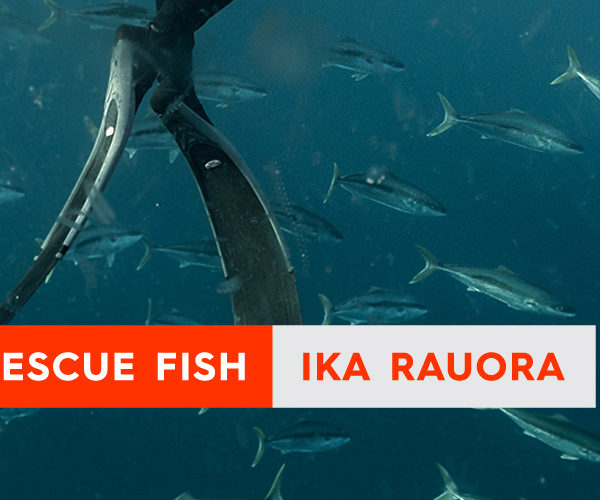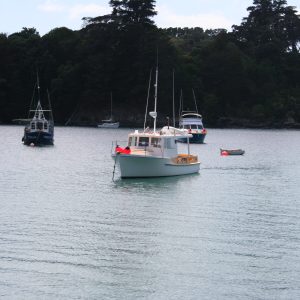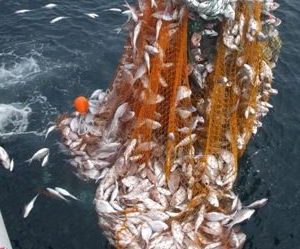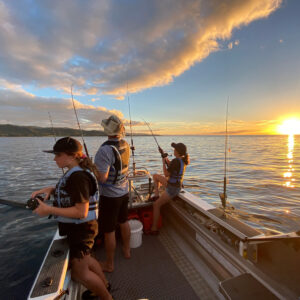We always knew Kiwis were passionate about their fishing. The reaction to the Rescue Fish policy has confirmed that we also care about prioritising the health of our marine environment.

Rescue Fish – Ika Rauora is a policy developed by LegaSea and New Zealand Sport Fishing Council to remedy depleted fish stocks and address the environmental damage caused by fishing. We have released the policy to spark discussion about the proposed and necessary solutions.
Many people have generously shared their years of experience and research to develop the Rescue Fish policy into a comprehensive alternative to the Quota Management System.
Giving effect to Rescue Fish will have positive benefits for all New Zealanders and the marine environment. It will also make our waters more productive for the benefit of future generations. Together we can unlock the corporate hold over our fisheries to:
- Enable commercial fishers to earn a sustainable income from fishing.
- Improve value for mana whenua through meaningful expression of kaitiakitanga, guardianship of our fish stocks and co-governance responsibilities with the Crown.
- Enable dynamic, real-time management of our fisheries instead of management in crisis.
Please make your voice heard online at Rescue Fish – petition.
US ban could force Government’s hand on cameras
Current resistance to installing cameras on commercial fishing vessels may evaporate if the US courts ban the importation of New Zealand seafood. The Sea Shepherd advocacy group has applied for an injunction against the US import of seafood caught using methods that threaten Māui dolphin in their habitat.
Recent decisions by the Minister of Fisheries Stuart Nash under the Threat Management Plan may not be enough to stave off the annual $2 million loss of exports to the US.
A court injunction could be applied within weeks and may impact on all $200 million worth of seafood exports to the US.
The threat to our export of snapper, trevally, tarakihi, gurnard and other species caught off the North Island’s west coast is another example of our broken fisheries management system.
Under Rescue Fish reforms all indiscriminate, bulk harvesting methods will be banned from inshore waters up to 200 metres deep or within 12 nautical miles of the coast. Also, independent electronic monitoring and cameras will be mandatory. These will help officials to monitor and validate catches, and protect vulnerable species including Māui dolphin, other mammals and seabirds.
There are concerns that the fishers who currently supply the wholesale companies cannot afford the expense of purchasing and maintaining onboard cameras. In our view, the cost-related arguments just reinforces the need for reforms so that commercial fishers can operate within a Government-owned and monitored system.
There are local and international advantages of moving to a more transparent system. Locally, the public will be reassured that our fish stocks and precious wildlife are being respected. Internationally our seafood could attract premium prices, not court action, if we implemented effective monitoring.
For example, in 2013 Ghana on the west coast of Africa received a ‘yellow card’ from the European Union (EU) due to its poor response to the illegal at-sea trade of tuna. The EU was Ghana’s biggest export market so this was a serious threat to their annual income. Ghana avoided the yellow card by implementing electronic monitoring including cameras, catch and location data systems on all 14 of its purse seine vessels.
The 3-year pilot has been so successful that the fishing industry and Ghanese Government have determined they want to expand the project to monitor other fishing vessels. They consider that electronic monitoring has indelibly changed fishing in Ghana, in sustaining the industry and wildlife, and bringing about social change.
The potential to induce social change and uplift attitudes in New Zealand is exciting. However, our immediate focus needs to be on averting international condemnation of fisheries management in New Zealand. Positive changes are required.
Extending the set net area closures and trawl bans on the west coast may go some way to appeasing the US courts. Rescue Fish will reduce the need for cameras by shifting indiscriminate fishing methods beyond inshore waters, and ensuring all catch from mixed fisheries is accounted for.
The Rescue Fish reforms are a simple solution to improving the monitoring of our fisheries and better protecting our marine wildlife.
What does change look like?
Firstly, the Quota Management System has to go and be replaced by a more agile regime that encourages artisanal fishing, regional jobs and economic growth.
With the QMS gone small-scale fishers will no longer have to pay rent to quota owners nor receive a fixed price for their catch. They will be empowered to innovate. Fishing permits will be priced so they can afford to find new low-impact ways to catch fish of the highest quality. They could even sell fish direct from their vessel, providing locals with the freshest catch. The possibilities are mouth-watering.
Another commitment is to ban industrial fishing methods from inshore waters. These include mobile, bottom contact bulk harvesting methods such as trawling and dredging, and purse seining. Inshore waters are those out to 12 nautical miles from the coast, or waters out to 200 metres deep, whichever is furthest from shore.
Change starts with the Government buying back at fair value all existing commercial quota shares in the inshore fishery. The estimated buyback cost is between $0.76 and $3.1 billion, with a mid-point of $1.67 billion. This cost is recoverable from the future sale of commercial fishing permits and will eventually provide an income stream to the Government for the benefit of all New Zealanders. A small price to pay if it means we are the first generation to pass on a fishery in better condition than what we inherited.
Rescue Fish principles
Fisheries management in New Zealand is characterised by a loss of public confidence in how fish stocks are managed or protected in the interests of future generations. Rescue Fish is founded on solid principles that will guide reforms and future actions, these are –
- All Fisheries laws will comply with the Treaty of Waitangi.
- The living marine resources of Aotearoa New Zealand remain the property of the people and cannot become the private property of private companies or individuals or sold abroad.
- All fisheries must be biologically, economically, and socially sustainable.
- To the greatest extent possible, commercial fishing rights will be granted in line with the principles of a market based system. The legislation will prevent private sales of licences or fishing rights.
- Catches will be landed in New Zealand and to the extent possible be processed here for added value.
- Only New Zealand owned and registered companies, or private New Zealand citizens, paying taxes in New Zealand and complying with all relevant employment and maritime law will be able to participate in New Zealand’s commercial fisheries.
- Within the inshore zone (12 nautical miles or 200 metre depth, whichever is more distant from shore) commercial fishing vessels may only be operated by the owner of the fishing permit.
Rescue Fish
Rescue Fish policy summary.
Rescue Fish policy – full document.
Please sign the Rescue Fish petition here.





